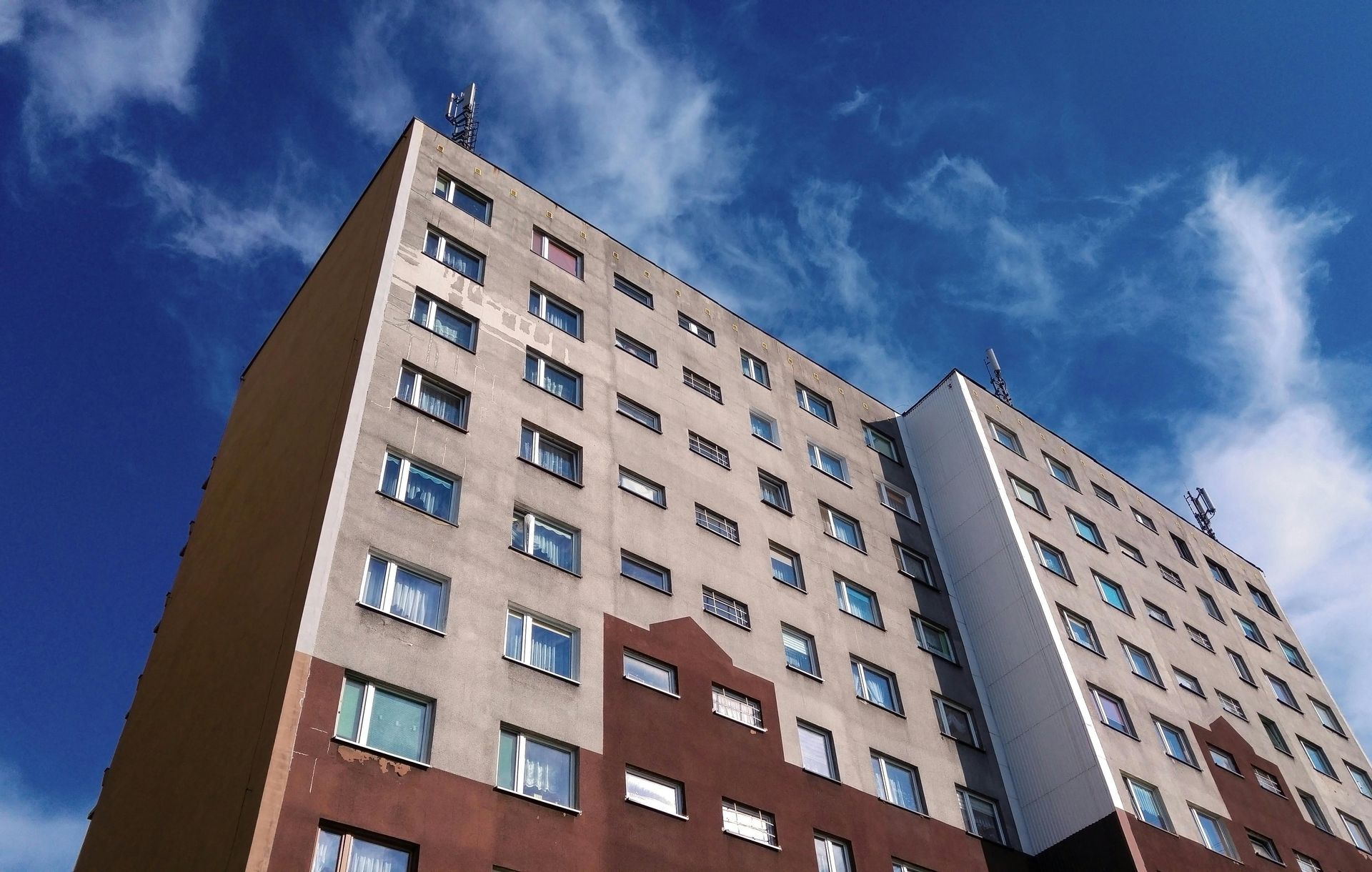Property Management in the Digital Era
When it comes to keeping up with technology, real estate is a relatively slow-moving industry. It’s a place where things are often done the same way “they’ve always been done.” That’s why it’s still common, even in our modern times, to find property management companies and other real estate firms relying heavily on things like paper files, filing cabinets, Rolodexes, and hard-lined phones. At Coastline Equity, we know this all too well, as one firm we acquired a few years ago was still operating precisely in this way.
Of course, this doesn’t necessarily mean that a real estate company can’t successfully operate like that. Still, it may miss out on many excellent tools that help better serve its clients, tenants, and employees. In this article, we will explore some of the technological improvements that have changed the property management industry.
Storing Data
The first and perhaps most fundamental way real estate and property management has moved into the digital era is through data. As mentioned before, many property management companies (particularly those serving individual investors rather than large corporations) still store much of their data on paper and in filing cabinets.
One primary reason is that property managers are responsible for producing, signing, and storing leases for all tenants. Many still feel uncomfortable with receiving anything other than a wet-signed lease. But according to the Electronic Signatures in Global and National Commerce Act, enacted by Congress in 2000, digital signatures are legally binding (1).
That’s why all of our leases are generated through the property management software we use, a shared copy is emailed to each lessee, and all signatures can be applied to the document electronically. This lease is then saved electronically and linked to the related property, unit, and tenant.
In addition to leases, invoices, bills, financial documents, and vendor contracts are also stored electronically within the management software, making the life of the property manager, accounting team, and maintenance technicians much easier and more organized.
This enables any authorized person in the management company to quickly and easily find important information about a property, whether that team member is out in the field or in the office. And this convenience applies to the property owner as well, by granting them quick and easy access to all that information from the comfort of their home.
Better Communication
Another way in which property management has embraced the digital era is through communication. Since one of the key functions of any property manager is to mediate the relationships between landlords, tenants, and vendors, communication between these parties is constant.
In the past, much of the property management business operated through phone calls and in-person communication. While this is still a vital part of managing real estate, the feedback from our tenants suggests that many renters now want to be able to communicate immediately with their property manager via email or text. Because of this, having a system that can provide alternative ways of communicating (such as mass texting, online portals, and chatbots), as well as recording that communication so that it can be accessed later, is paramount to a successful and scalable property management business.
Our management software gives us the flexibility to send personalized texts and emails to individual tenants, as well as mass texts and emails to all tenants in an entire building. As mentioned before, this information is then saved with each tenant’s profile.
Having this digital record of what communication was made and when can also benefit property owners since it increases transparency and provides evidence of what was said in the event that disputes arise.
This has also had a positive effect on leasing activities. While some prospective tenants will inquire about vacancies via phone, many prefer the ease and quickness that comes with communication through text and email, as well as visiting our customized “Availability” page on our website.
Communicating this way with prospective tenants allows us to store their information in what are known as “Guest Cards,” and it makes it easy to send links, pre-recorded video tours, and photos of the unit.
Automating Tasks
While much of a property manager’s work requires quick responses to unexpected events, the job also entails a large number of routine operations, such as collecting rent, creating lease renewals, and monthly financial reporting. Previously, property managers would have to perform each of these processes manually, which could be very time-consuming and inefficient.
While many companies still work this way, nowadays, these tasks can be largely automated using property management software.
To expand on the examples above, rent reminders are automatically sent out to tenants each month, along with a link to the Tenant Portal, where rent can be paid via direct deposit. For large buildings and standard rent increases, the software can generate a lease renewal letter to tenants on a specific number of days, weeks, or months prior to the current lease expiration.
And lastly, financial information can be pulled from the data collected in the property management software in order to auto-generate much of the monthly financial reports that get sent to property owners.
The increased efficiency that automation brings allows property managers to focus less on the routine aspects of managing a property and more on tasks involving emergencies, unique situations, critical thinking, creative solutions, and innovation.
Digital Tools in the COVID Era
Lastly, it should be said that during this unprecedented time of COVID-19, the use of digital tools became critical to maintaining smooth property operations. Property management tools (alongside general technology such as smartphones, tablets, video conferencing software, and cloud services) enabled management to continue with important functions such as leasing vacant spaces and coordinating work between tenants and vendors. One specific tool that was used during this time was the video tour.
Typically, tours of available rental spaces and interior inspections were performed in person. However, this was simply not possible with lockdowns and social distancing. Management companies that could quickly adapt and begin utilizing their phones and tablets to perform these tasks were better able to handle the pandemic.
Meanwhile, firms that had not already implemented this technology into their workflow often struggled to navigate all the uncertainty, changing regulations, and concerns for safety.
And ultimately, relying on these technologies during the pandemic made property managers, tenants, vendors, and landlords more accustomed to their use. As a result, these technologies have become even more commonplace while the severity of the pandemic has subsided.
Conclusion
While it’s unlikely that the real estate industry will ever be on the cutting edge of technology, property management companies that are willing to adapt quickly to innovation and test to see what works, will inevitably be better positioned to serve their clients and their tenants.
If you have any specific questions about how Coastline Equity embraces technology in the property management industry, feel free to contact us through our website at www.CoastlineEquity.net
More about Coastline Equity
Property Management Services
 Learn More
Learn MoreOur team will handle all your property needs, offering specialized services such as in-depth inspections, liability management, staff recruitment and training, and round-the-clock maintenance—expert support tailored to the unique requirements of your real estate assets.
About Us
 Learn More
Learn MoreOur dedicated team transforms property management challenges into opportunities. From tenant management to streamlined rent collection and proactive maintenance.
Property Management Excellence
 Learn More
Learn MoreAs a contributing author for Forbes, Anthony A. Luna brings a wealth of expertise and knowledge in the property management industry, real estate sector, and entrepreneurship, providing insights and thought-provoking analysis on a range of topics including property management, industry innovation, and leadership.
Anthony has established himself as a leading voice in the business community. Through his contributions to Forbes, Anthony is set to publish his first book, "Property Management Excellence" in April 2025 with Forbes Books.
Insights
 Learn More
Learn MoreLearn more about Coastline Equity's property management practices & processes and how we support our clients with education and a growth mindset.
Coastline Equity Property Management is your partner as you continue to learn and grow.
News & Updates
Property Management Made Easy
Los Angeles
1411 W. 190th St.,
Suite 225
Los Angeles, CA 90248
Temecula
41743 Enterprise Circle N.,
Suite 207
Temecula, CA 92590
P.O. BOX #1489
TORRANCE, CA 90505






